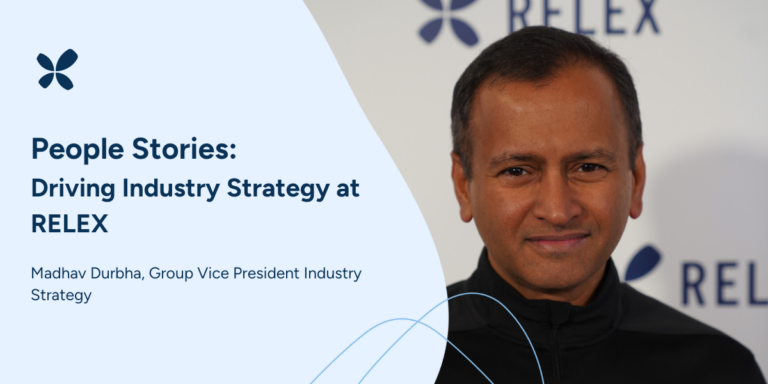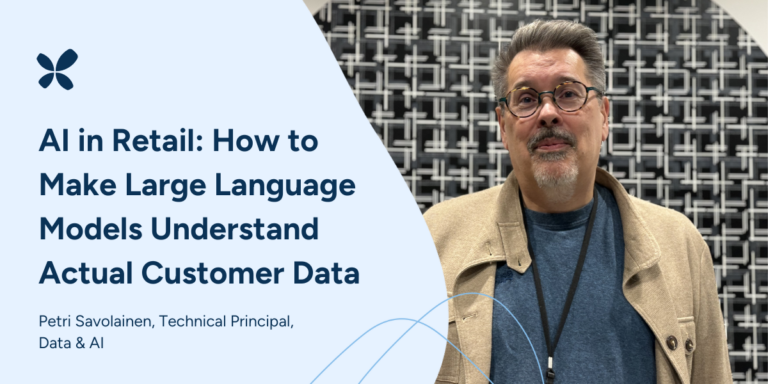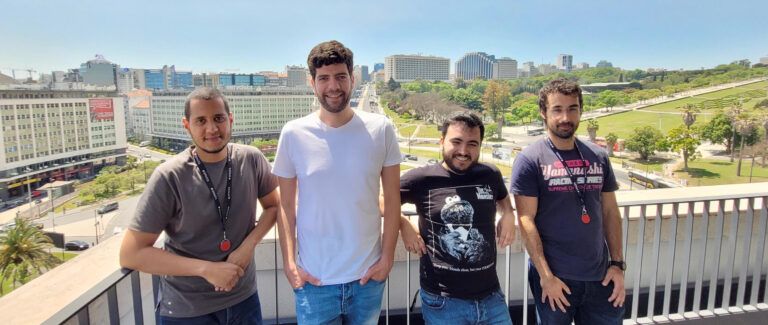Finding the Right Balance Between Software Development and Operations as a DevOps Engineer
Jun 7, 2022 • 4 min
In 2019, Darren Glynn wondered how he could achieve his career aspirations of combining developmental and operational work within the world of software development. He was drawn to DevOps as he felt it would provide the combination he was looking for.
Darren had been with RELEX for a while, working as a Site Reliability Engineer. But he was at a point in his career where he wanted to take his knowledge to the next level. “My drive for change was that I wanted to develop robust tools and enhance existing ones – to help my teammates succeed better in their daily workflow. I decided to enter the domain of software development”, Darren explains.
What made Darren choose DevOps, and why is it the right fit for him?
Exploring a few opportunities before deciding on the next step
Darren was drawn to DevOps because that’s where operations quite naturally meet development. He explored a few new opportunities before making his decision.
“Trying out a few alternatives, such as our monitoring team and Cloud DevOps team, was a fantastic way to explore what working in different teams would be like”, Darren says.
Once Darren and his new team were finally matched, things moved forward quickly. “It was fast! I was interviewed on Tuesday and started in my new team on the following Monday”, he laughs.
Why Darren chose DevOps
Darren’s desire to combine the operational and development elements of work is realized in his current position as a DevOps Engineer.
What made Darren choose DevOps?
- A new challenge in software development that combined his passions.
- The learning opportunities to move his career forward – maybe becoming a CTO somewhere, someday.
Darren and his team are working with workforce optimization and management to help our customers forecast workload, create matching shifts, and improve employee satisfaction. As DevOps Engineers, they focus on developing the quality, speed, and resilience of the software development process behind our product.
“We live by our mantra: if it can be documented, it can be automated. Our goal is to automate the pain away.”
There are three different tracks to follow in Darren’s team: infrastructure, quality & assurance, and dev-tooling. These focused tracks are quite new, and until recently, the whole team worked (more or less) on all these areas.
According to Darren, it is a great improvement to be able to evolve in a specific area, but still work collaboratively with the whole team. “I have a chance to diversify my knowledge and experiences”, he says.
How would Darren describe the purpose of his role as a DevOps Engineer?
“DevOps Engineers facilitate the software development process transitioning into a smooth and continuous interaction cycle. It is all about automation and managing the flow, from design to production, in a smooth manner”, Darren says.
Darren himself focuses on dev-tooling, where he develops the tools for developers to improve the testing and debugging of the software. “We recently developed an application to reduce the time development teams spend working on certain processes, such as the anonymization process for our databases”, he concludes.
“We live by our mantra: if it can be documented, it can be automated. Our goal is to automate the pain away”, Darren laughs.
DevOps is the oil between teams
The main challenge for Darren and his team is to make the software deployment pipeline work better.
The DevOps team monitors software infrastructure to accelerate the feedback loop in the development and to interact faster with the developers.
“DevOps is a state of mind and a way of working. It is a combination of hard and soft skills.”
According to Darren, DevOps is a state of mind and a way of working. It is a combination of hard and soft skills. “It is all about creating efficiency, to save seconds or even minutes that count”, he explains.
What is their role in the cooperation between the operations and the developers?
“DevOps is the oil between the teams. We are trying to make the workflow function better”, Darren says.
Darren emphasizes the collaboration between operation and development. If Darren and his team are unaware of what the other functions are doing, they can’t help them. “It is vital that we continuously study each other’s ways of working to spot elements profiting from better efficiency”, he says.
In the end, everyone has the same goal: to continually improve our application for our customers to be as good as it can be.
What keeps Darren inspired and motivated at RELEX
Darren pinpoints three key elements that keep him inspired and motivated to work at RELEX.
#1 Regular opportunities to broaden knowledge.
“We get to use 20% of our working hours for innovation time. It means a time for learning new things that are not necessarily related to our daily tasks. I am using this time to improve my software development skills and broaden my knowledge”, Darren explains.
#2 The learning-by-doing mentality shared by our people
In Darren’s experience, there are various technological challenges to be solved every day.
“It is also pretty evident that solving those challenges helps our customers to thrive. That makes our job more concrete and adds meaning to our decisions and actions”, Darren says.
#3 “Put an end to stupid things”
Darren relates with our core value of “put an end to stupid things”.
“I feel like we are helping humanity move forward from an ecological perspective. The big driver is to do more and waste less – something I feel all my colleagues agree with, making it feel like we are truly chasing the same goal”, Darren sums up.
Darren’s career path at RELEX is a perfect example of how we facilitate both career development and finding the ideal role for each of our employees.
Read how Jenni moved from the role of teacher to Quality Assurance Engineer at RELEX.
Would you like to work with the world’s leading retail technology? Check out our open positions here.


